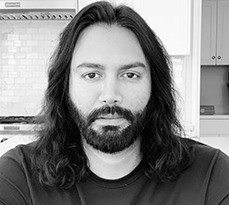
Nofel Izz, serial entrepreneur and Cambridge Judge Business School alumnus (EMBA 2016), has launched and invested in 19 startups ranging from batteries to human resources to fintech to health-related ventures. These include Portable Loo, a firm that produces transportable small-scale lavatories for use in developing areas where toilets are scarce, and O Mask, an apparatus that would help a person escape from a vehicle submerged in water while providing breathable air for up to 10 minutes.
These days, while remaining active in these various ventures (and, as he’s a keen singer, recording a music album), Nofel is intensely focusing on health care as he plans the next phase in his career and entrepreneurial journey.
His latest venture – Acme Clinical Trials (ACT) – aims to make clinical trials accessible to patients and researchers worldwide. The idea was born during his studies in Cambridge, when he linked up with some other classmates now working at ACT. Nofel says the venture will “democratise” clinical trials, while allowing users to securely upload medical records and other relevant information. The data will then be analysed using ACT’s Artificial Intelligence and image recognition, and patients will finally be matched to one of 300,000 relevant trials.
Nofel says the company recently received significant investment, and he was hired as CEO to develop the venture – which aims to harness artificial intelligence to allow millions of people in developing countries to search for the best possible treatment with the highest success rate.
“For example, if you would like to know what procedures patients underwent in Mumbai, India, ACT would be able to list names of doctors and all procedures performed, medications prescribed, as well as the recovery time. This information would be valuable to patients seeking assistance for a possible procedure to get an unbiased suggestion,” he says. “It would also help pharmaceutical companies monitor use or misuse of drugs, competitive trends, and governments monitoring public health and safety.”
The idea is to make it easier for individuals seeking treatment to accurately define their ailment and point them in the right direction, rather than leaving it up to them to search for treatment on their own.
Coupled with his new role at ACT, Nofel is also hoping to soon begin a masters degree programme in public health and then a PhD, perhaps as early as this autumn. He believes there is an unrealised potential when twinning AI with public health platforms.
Born and raised in Dubai, Nofel launched his first venture, an online jobs portal in the Middle East, in 2001 after he left his job as a banker in Toronto. Now living in California, he reckons he travels 2 dozen times a year visiting his various ventures.
When asked how difficult it is to juggle so many businesses, Nofel said that ventures only take up a lot of time during initial stages: “As soon as an investor is on board, I am able to hire a manager to help smooth the transition to help to establish these companies and set up operations. I usually overlook development, branding, and setting up the operations initially, and then have someone manage it for me.”
He says the ideas and inspiration for new businesses come from daily conversations and meetings: “I often find myself discussing with others while working out my ideas mentally, plotting and planning them before they are eventually realised. Often, I can see through the entire idea without even having to put it down on paper.”
Nofel’s father and grandfather were both entrepreneurs, so he believes he inherited the “invention gene” from his family. As a child, he says, he often asked his parents: “wouldn’t it be better if we could do it that way?” He thinks a good entrepreneur is someone who suffers from “delusional optimism” – while hard work and tenacity important too. “My advice for a startup usually is: ‘Never share your idea unless it fully worked out.’ You wouldn’t want advice or feedback on anything partially created and must not expect good feedback based on that.”
This article is part of Venturing Forth, our series on the aspirations and challenges of ventures connected to students, alumni and others associated with Cambridge Judge Business School.


